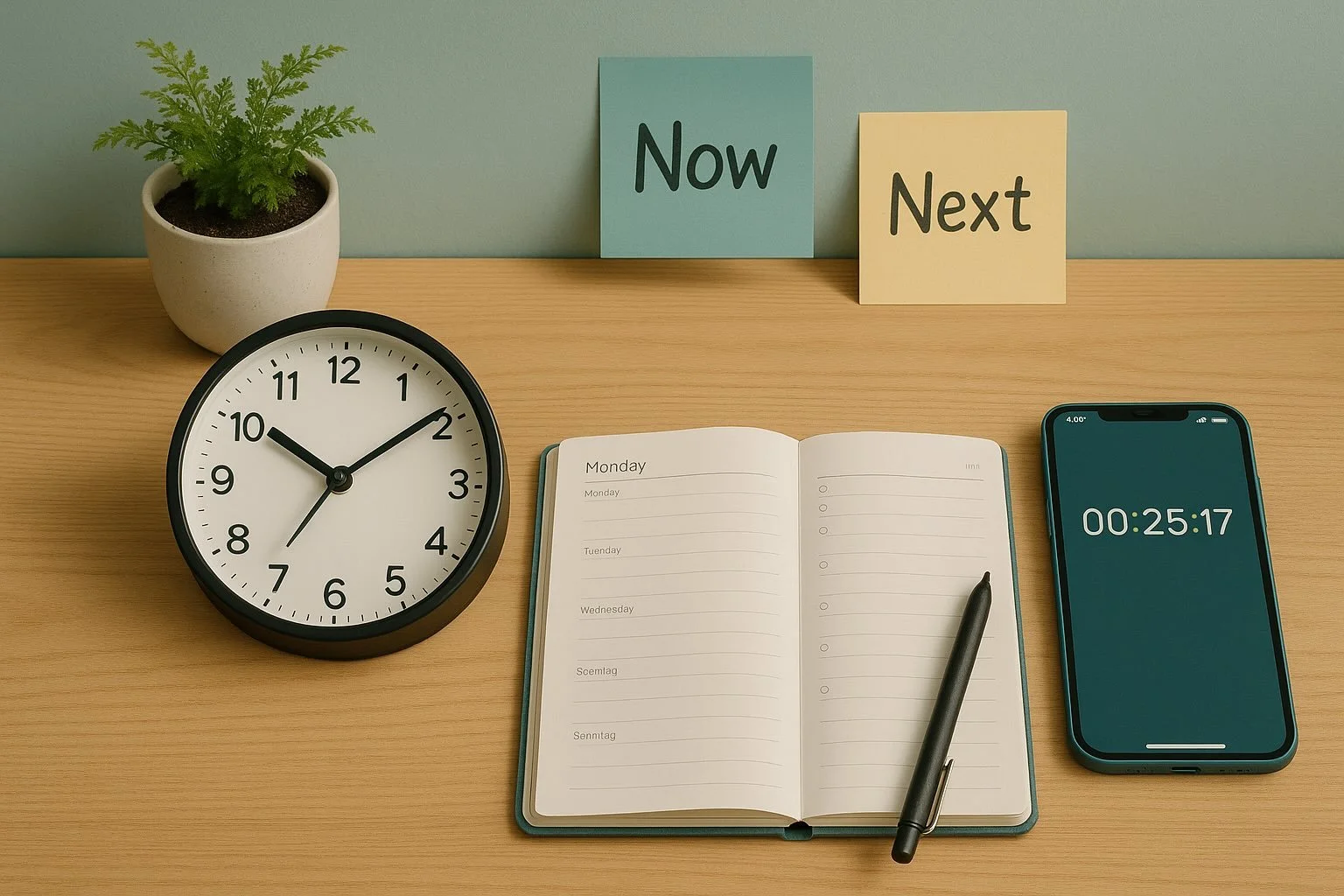Does ADHD Medication Help With “Time Blindness”?
Always running late? Underestimating how long things take? Missing transitions because your brain refuses to switch tasks? That cluster is what many adults call time blindness—and yes, it’s a real, measurable part of ADHD.
Short answer: Medication often helps—but only partly, and only when the dose and timing match the hours your day actually falls apart. The rest is structure and skills.
What “time blindness” really is
Time blindness combines three problems:
Impaired time perception (minutes don’t feel real until they’re gone)
Weak prospective memory (you forget to remember)
Executive friction (starting, stopping, and switching tasks is harder than it should be)
How medication helps (and where it doesn’t)
Stimulants (methylphenidate, amphetamines) boost attention, working memory, and task initiation. That usually means fewer late starts and shorter overruns.
Non-stimulants (atomoxetine, guanfacine, bupropion) help more gradually. They can improve follow-through and reduce emotional “static,” which also steadies time use.
What meds don’t do: install a perfect “inner clock.” You still need external scaffolds (timers, routines, buffers). Medication raises your ceiling; habits lock in the win.
Coverage matters more than brand
If mornings implode, you need morning coverage. If evenings unravel, you need a plan that touches 5–9 pm without wrecking sleep. Examples:
Long-acting in the morning plus a small, time-boxed booster when late-day transitions matter.
Or a once-daily long-acting that actually lasts to your pain points (not just noon–4 pm).
We sequence this with you so the right hours get help—not just the hours your prescription happens to cover.
How to measure success
Don’t guess. Track three numbers for two weeks before meds and two weeks on meds:
On-time rate to fixed commitments
Average overrun vs. planned duration on routine tasks
Start-latency on hard tasks (how long from “plan to start” → “actually start”)
If these don’t budge, we adjust dose, timing, or approach. No drama—just data.
What gets in the way (fix these or meds underperform)
Sleep debt and inconsistent wake times
Anxiety/PTSD hyperarousal that hijacks attention
Depression (low drive = slow starts)
Heavy cannabis/alcohol (both distort time and motivation)
We treat what’s actually driving your time problems, not just the label.
What an evaluation looks like here
75–90-minute intake over 2 sessions: history, goals, schedule mapping, sleep, mood, trauma load, executive profile
Targeted screening for ADHD and trauma (because they often overlap)
Clear plan: medication when it helps, plus practical time-management systems
Follow-through: short check-ins during titration; adjust to function, not vibes
Simple systems to install
Visible time: analog clocks where you work and get ready
Transition alarms: one to stop, one to start next (five-minute gap)
Now/Next cards: what you’re doing now, and the very next action
Fixed buffers: calendar blocks that absorb life’s chaos so you’re not always late for the next thing
FAQs we hear in Portland
Will medication alone fix time blindness?
No. It makes the behaviors possible. Structure makes them consistent.
What if stimulants make me anxious or wired at night?
Then the dose/timing is wrong—or they’re not your best fit. We’ll adjust or use non-stimulants and sleep-friendly strategies.
Can therapy help time blindness?
Yes—executive-function coaching, trauma-focused therapy when needed, and habit design make the gains stick.
Work with us (Portland clinic • Telehealth across Oregon)
If you’re done wrestling with time and ready to run your day on purpose, we can help.
Bring: your weekly schedule, top three time pain points, and a short list of what a “good week” would look like
Bottom line: The right medication, at the right hours, plus durable systems = fewer late starts, cleaner transitions, and a week that finally runs on rails.

